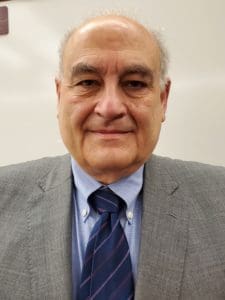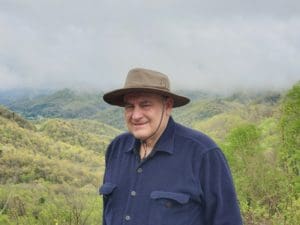Illuminating the Path Towards Peace. Member Spotlight: Bob Creo
Bob Creo, one of the founding members of Mediators Beyond Borders International, is a widely acclaimed and experienced arbitrator and mediator with over 40 years of experience. An arbitrator of many successes, Bob has co-founded not only MBBI but also the International Academy of Mediators, as well as the Master Mediator Institute. He has taught and trained arbitrators throughout the United States, Europe, and Africa.
An Early Pioneer
 Graduating with his J.D. from Washington University in St. Louis School of Law, Bob began his young career in labor arbitration. After completing an apprenticeship with a practiced lawyer, Bob veered towards labor disputes. This typically includes disputes between organized unions and corporations with cases such as employee discipline and contract interpretation cases. As mediation became more popular, Bob set up an alternative dispute resolution (ADR) program with the Pennsylvania Bar Association. It was divided into two sectors: mediation and arbitration to resolve disputes amongst lawyers. “We encouraged people to put mediation and arbitration clauses in the contract”, he explains, “and if they implemented these clauses, one of the malpractice insurance companies would give a 5% discount in their agreements”. In this manner, companies had a clear incentive to implement mediation and arbitration stipulations.
Graduating with his J.D. from Washington University in St. Louis School of Law, Bob began his young career in labor arbitration. After completing an apprenticeship with a practiced lawyer, Bob veered towards labor disputes. This typically includes disputes between organized unions and corporations with cases such as employee discipline and contract interpretation cases. As mediation became more popular, Bob set up an alternative dispute resolution (ADR) program with the Pennsylvania Bar Association. It was divided into two sectors: mediation and arbitration to resolve disputes amongst lawyers. “We encouraged people to put mediation and arbitration clauses in the contract”, he explains, “and if they implemented these clauses, one of the malpractice insurance companies would give a 5% discount in their agreements”. In this manner, companies had a clear incentive to implement mediation and arbitration stipulations.
Bob later became an affiliate of the U.S. Arbitration and Mediation network, which was established in 1985 and provides skilled mediators and arbitrators to legal, business, and insurance companies within the country. As mediation was in the primary stages of its development during this time, Bob’s became one of the early practitioners who were pioneering mediation for personal injury disputes, labor, and commercial litigation disputes. While traveling the country mediating such disputes, Bob succeeded in mediating conflicts in over 35 states. He also taught the initial ADR course at Duquesne law school from 1992-2003 which was added to the curriculum by his suggestion.
Compassion in Mediation
Since 2014, Bob has taught decision-making at Duquesne University as an adjunct professor. He continues to be involved in arbitration and mediation, mostly settling cases in the Pittsburgh area. He claims that the most difficult cases in labor disputes are those individuals which are gravely injured or undergo malpractice. “Unfortunately very simple mistakes can end fatally and you cannot translate economic payment from a company to somebody who has maybe lost their loved one. It is not an equivalency”, he explains. Although multiparty cases can also be complex, Bob notes that catastrophic cases wear heavily from the subject matter standpoint. However, as a mediator, “what makes yourself effective is your compassion, empathy and your ability to connect and bond with people. You need to engage but also move forward at the task at hand”.
MBBI’s Road to Creation
 Bob Creo is one of the founding members of MBBI. Back in 2006, he came into contact with Ken Cloke, MBBI’s key founder and leader, who wrote an article discussing 30 ways mediators can help build capacity which focused on post-conflict communities. They each attended the Association for Conflict Resolution meeting and invited a group of people with mediation backgrounds for lunch to discuss the potential launch of an international mediation project. The original idea was to create an organization named Mediators Without Borders, which would have a similar mission and configuration as Doctors Without Borders, extending their services internationally to local communities through regional projects. After the name was finally settled to Mediators Beyond Borders, together with Ken, they created the Founder Fellowship program which paid the yearly dues for people worldwide to join MBBI.
Bob Creo is one of the founding members of MBBI. Back in 2006, he came into contact with Ken Cloke, MBBI’s key founder and leader, who wrote an article discussing 30 ways mediators can help build capacity which focused on post-conflict communities. They each attended the Association for Conflict Resolution meeting and invited a group of people with mediation backgrounds for lunch to discuss the potential launch of an international mediation project. The original idea was to create an organization named Mediators Without Borders, which would have a similar mission and configuration as Doctors Without Borders, extending their services internationally to local communities through regional projects. After the name was finally settled to Mediators Beyond Borders, together with Ken, they created the Founder Fellowship program which paid the yearly dues for people worldwide to join MBBI.
The vision that both Bob and Ken shared was that the organization was to evolve organically, performing on a project-to-project basis and “respecting how we interact with stakeholders”. Bob explains his intent “was to be the secretary of the treasury for the organization for 3 years and then let the organization move forward once it gained traction”. They did not want to inflict a Western approach and instead wanted to create the foundation blocks for local communities to establish their own peacebuilding mechanisms and realize their capacity. “I love the idea of having people on the ground because we can see the project growing and we can actually know how the community is responding to this”.
“Save a life, save a nation”.
When asked if there was a specific objective that they wanted to achieve within MBBI, Bob simply says “I do not have a fixed outcome. I am open, not attached to the outcome because once an organization becomes attached to the result, frustration will arise because it is not easily attainable”. Although Bob has not been as active recently within the organization, he continues to support MBBI’s model of having community-focused projects and alliances with outside organizations such as Rotary International. As Bob nears his retirement he is looking to strengthen his role within the organization that he so diligently helped to create.
Bob references a saying from Jewish tradition, “save a life, save a nation”. Although the projects may be minor, we must begin trying to tackle the big issues using these small building blocks. It is these small changes that infiltrate and spread to other communities, illuminating a lasting light on the world. Bob smiles, “We must be determined wherever our leads, hearts, and resources take us”. In holding the values of understanding and commitment, mediators can make a difference worldwide. Bobs ends with, “We should always be perpetually learning about the world, its people, the organizations, and how organizations can contribute to peace”.
Article by Emily Shultis, MBBI Writer
